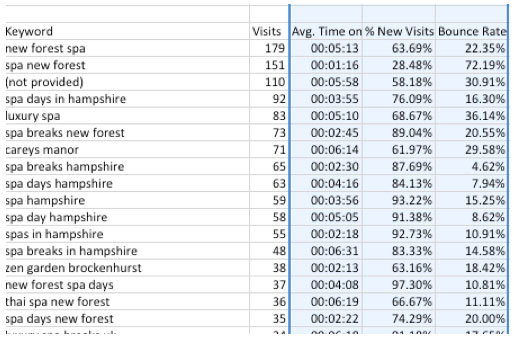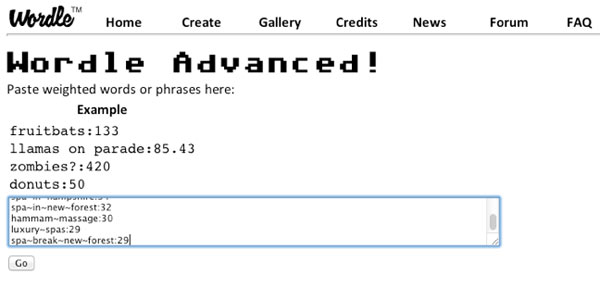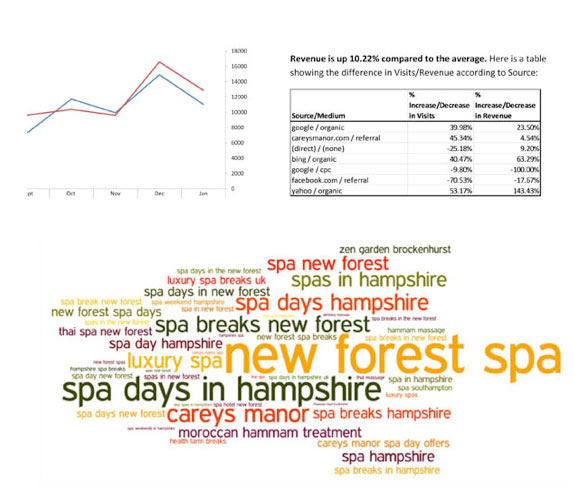Winning & impressing future clients is vital to a company’s growth. If you have worked hard to build up partnerships with clients developing websites & apps for them, but they’ve gone elsewhere for their SEO, PPC and Digital Marketing Services, this is bad for your business. As Magento Developers, we often have meetings with clients to discuss the opportunities that SEO services offer, but, oftentimes, the clients would be struggling to digest the analytics data that is given to them.
We had to find a way to present the data in an easily accessible and instant way, to give the clients an understanding of their potential keyword traffic. We started using Word Clouds and were amazed by how much better our clients responded to this approach.
So here’s a quick and easy guide to create a Word Cloud. I’m going to create a Word Cloud from SenSpa’s data, a client that specialises in Spa Days, using their organic non-branded keywords. However, the same principle can as well be easily used with Google Traffic Estimator.
1. Access your organic search data
Open Traffic Sources > Search > Organic
Use advanced filtering to remove branded keywords. This will leave you with all the organic non-branded terms which brought traffic to your site under that specific date.

2. Export data
Export your data to CSV. Delete everything you don’t need. In this case I’m taking the total visits (equally this can be applied to any other relevant metric based on your project).

3. Copy data into Wordle Input Generator (www.wordle.net)
Copy the keywords you want and the metrics you’d like to us to measure the data into the generator.
4. Paste into Wordle Advanced & press Go
Paste the combined values into Wordle Advanced. Press go.

5. Finish your visualisation
You can easily adjust the colours and export to PDF. Once exported just drop your word cloud into your SEO report to give your client an easy visualisation of traffic to their site and to add some colour to your report. It’s worked great with our clients, as it’s easy to digest, so try it out!

This post was written by Jeremy McDonald from SEO Bournemouth. Jeremy has an interest in everything digital, particularly SEO, PPC and Digital Marketing. He also spends too much time on Reddit.
Author: Jeremy McDonald
Jeremy McDonald works for SEO Bournemouth. Jeremy has an interest in everything digital, particularly SEO, PPC and Digital Marketing. He also spends too much time on Reddit.
Twitter •